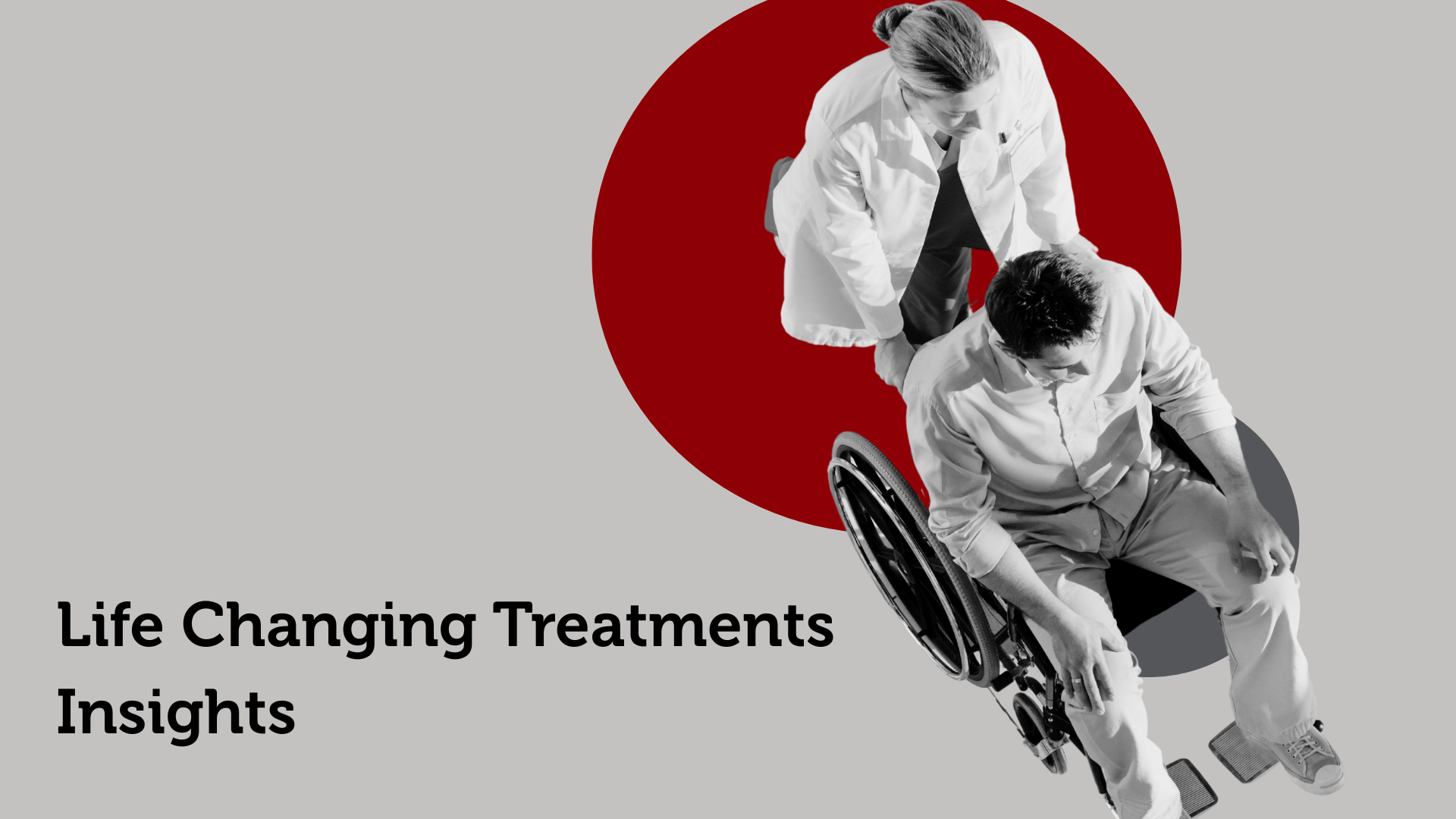Are patients about to benefit from a revolution in cancer detection?
The way in which cancer is detected and monitored is changing. It is now possible with a single blood test to identify which patients are most likely to relapse on average nine months earlier than with traditional scans. Furthermore, four out of five of the positive tests provide actionable insights for physicians.
We are encouraged by these developments, which align with our patient-centric approach to healthcare investing. Our simple philosophy is that if we focus exclusively on the most life-changing solutions, we believe we will identify more commercially successful companies. Tests that detect cancer sooner, provide additional insights and can be conducted more frequently fit squarely in that focus.
Natera’s blood test Signatera was an early mover in blood-based cancer testing and is beginning to reap the benefits. The value of Signatera has been characterised in more than 100 scientific publications and more than 200,000 patients have been tested. However, this still represents only a small fraction of the millions of cancer patients globally that could benefit and may represent significant potential for sustained growth for multiple blood testing companies.

While earlier detection of cancer recurrence and additional insights are appealing clinical characteristics of blood-based tests, we believe patient preference for simple blood draws is an important but less appreciated aspect of these tests. Patients typically dislike traditional testing methods involving invasive procedures such as colonoscopy or getting in claustrophobic CT machines.[1] And we believe it is important for investors to incorporate not just clinical statistics of test accuracy into their analysis of a diagnostic company’s products, but also to consider patient preference and barriers to access.
The importance of early detection and why so many early cancers are missed
Cancer screening is crucial because we know that when cancer is detected early, the outcomes for patients can be dramatically improved. For example, when colorectal cancer is detected early, more than 90% of patients will be alive more than five years after diagnosis. But when detected late, less than 20% of patients will survive more than five years after diagnosis.
Gold standard screening tests capable of up to 100% accuracy of detecting colorectal cancer exist and many countries have implemented screening programs. However, adherence to these screening programs remains suboptimal, with compliance rates as low as 40%,[3] and evidence suggesting more than three quarters of the patients who die from colorectal cancer are not up to date with screening.[4] In our opinion, the reason the current system fails is because patients hate the gold standard test, which is colonoscopy. Patients often express concerns regarding the invasiveness of the procedure and the need to consume chemicals prior to the test that highlight cancerous growths in the gut. We believe the issue is not patient behaviour, but the nature of the test.
How can this be changed, and is there an investment opportunity?
There are alternatives! The Cologuard stool-based test provides high accuracy without an invasive procedure. Exact Sciences, the maker of Cologuard, estimates that for every million tests performed, its solution collectively adds 318,000 years to patients’ lives.[5] Cologuard’s multi-billion dollar sales are testament to the unmet need in colorectal cancer screening.

But collecting and providing a stool-based test may not be acceptable for all patients and this creates a potential opportunity for Shield, a blood-based test recently approved for colorectal cancer screening. There are trade-offs, the convenience of a blood test may come with a lower detection rate of pre-cancerous growths, but getting a lower accuracy test done is often better solution than performing no test at all. Therefore, blood-based alternatives have the potential to improve outcomes of patients who would otherwise not be tested.
Can physicians extract more insights from blood-based tests to benefit patients?
Detecting new or recurrent cancers is one use case for blood-based testing, but the hope is that it can also be used to guide more treatment decisions over time. However, data is still emerging and recent results have presented mixed results. The ALTAIR study investigated if patients would benefit from more intensive or less intensive chemotherapy based on the presence or absence of cancer DNA in the bloodstream post-surgery, but outcomes for patients were not significantly better when more intensive therapy was used.
In contrast, the SERENA-6 study showed significantly improved outcomes for patients who were switched to a new drug after a cancer mutation was detected by a blood-based test, months before cancer progression was detected by traditional scans. The data suggests to us that blood-based tests will likely find expanded applications in cancer treatment; however, selecting the right drug at the right time will be crucial for achieving improved patient outcomes. Therefore, we believe it is important for investors to take a holistic perspective on patient treatments, considering not only innovative cancer drugs, because their success may increasingly be determined by the availability of blood-based tests that predict patient response to therapy.
In conclusion, as cancer detection and monitoring becomes more patient-focused, we think there are a number of opportunities which align with our strategy: investing in businesses which offer the most life-changing solutions to patients. A handful of recently commercialised tests offer the opportunity to positively transform cancer outcomes for patients and over time we expect the field to continue to develop with opportunities to drive higher accuracy and even more actionable insights. It is our view that commercial success and shareholder returns are more likely to accrue to the most impactful solutions for patients.
Key Information
No investment strategy or risk management technique can guarantee returns or eliminate risks in any market environment. Past performance is not a guide to the future. The prices of investments and income from them may fall as well as rise and investors may not get back the full amount invested. Forecasts and estimates are based upon subjective assumptions about circumstances and events that may not yet have taken place and may never do so. The statements and opinions expressed in this article are those of the author as of the date of publication, and do not necessarily represent the view of Redwheel. This article does not constitute investment advice and the information shown is for illustrative purposes only.
Sources:
1] Heyer et al., Acad. Radio., 2015, 22, 105-112.
[2] Guardant Health press release 13/03/2024. Accessed 24/03/2025.
[3] Guardant Health 2024 10-K.


